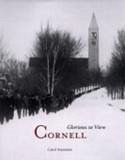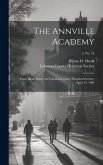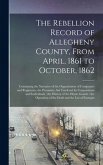The steep hills and dramatic gorges of Ithaca were the setting for a revolution in American education when, in the 1860s, a self-made man sought "to do the most good . . . to the poor and to posterity." Ezra Cornell's philanthropy, enhanced with funds from the Morrill Land Grant Act and enlarged by the vision of educator Andrew Dickson White, created what has been called the first American university--a modern, democratic, research-oriented institution that from its beginnings was open to young men and women of all creeds and all races. Reflecting the complementary ideas of its founders, Cornell University has combined the industrial science and technology of America with the humanism of Athens to serve both the individual and society. In her concise, generously illustrated account of Cornell, Carol Kammen places that bold vision in its nineteenth-century context--a time when higher education was restricted to a privileged few. Cornell would be different: Cornell would foster egalitarian creativity whether in artistic endeavors, pure research, or practical fields. In the years since Ezra Cornell and Andrew Dickson White set the university on its course, Cornell's tradition of tolerance and freedom of expression has been tested often and severely, and on occasion the university has fallen short of its high ideals. But as Kammen's research reveals, the challenges have never long clouded Cornell's vision, and the university enters the twenty-first century as an institution of international stature and a leader in educational opportunity. Kammen, a noted local historian and lecturer in history at Cornell, tells the glorious story of this great university with verve. Highlighting the textare excerpts from important documents pertaining to Cornell and images from the University Archives in the Cornell Library's Division of Rare and Manuscript Collections, selected by Susette Newberry, a Cornell archivist specializing in photography and media studies. Together,
Hinweis: Dieser Artikel kann nur an eine deutsche Lieferadresse ausgeliefert werden.
Hinweis: Dieser Artikel kann nur an eine deutsche Lieferadresse ausgeliefert werden.








